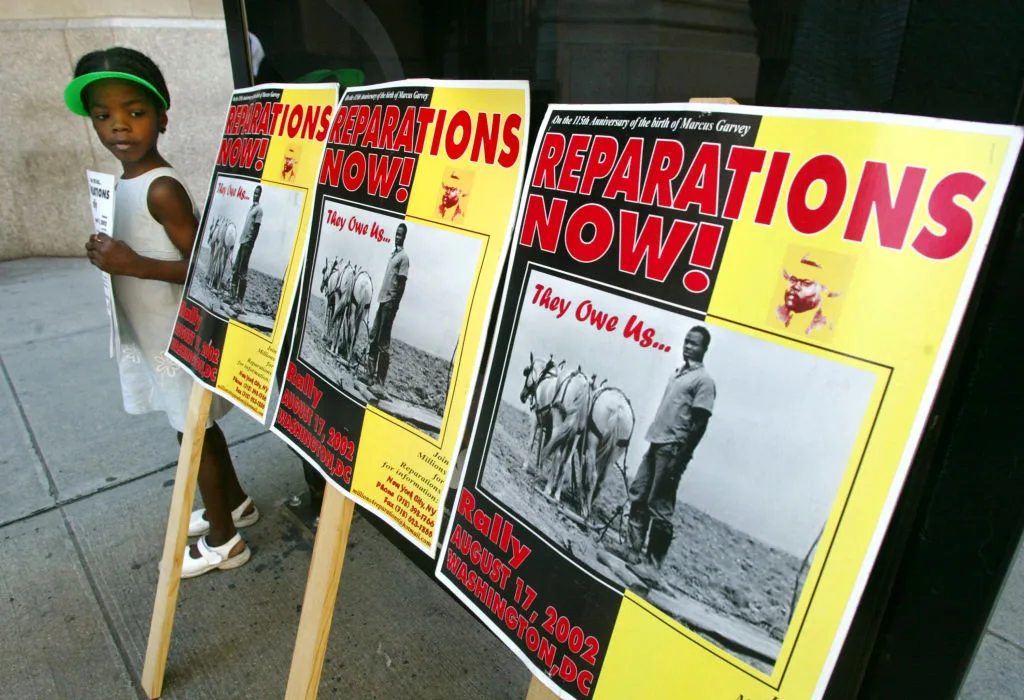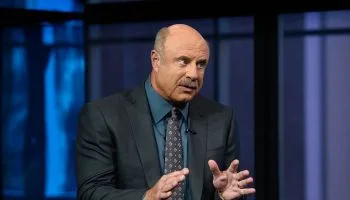
Source: Mario Tama / Getty
Grassroots organizations, leaders, scholars and activists in the movement for reparations gathered on Saturday in Georgia for a two-day event centered on reparative justice to atone for the U.S.’ enduring legacy of slavery.
The National Reparations Convention was being held at Georgia State University this weekend “to develop a comprehensive, unified demand for reparations,” according to a website about the gathering.
A who’s who of leaders in the movement for reparative justice are listed as either being National Reparations Convention keynote speakers or panelists “who are driving the reparations movement across America, the Slavery Diaspora and Globally,” the website says.
Notably, it also says “there are numerous organizations advocating for reparations on the local, national and international levels that would benefit from coming together.”
However, on Saturday, one of the panelists originally scheduled to participate in the National Reparations Convention said her invitation had been revoked.
Yvette Carnell, CEO of the ADOS Advocacy Foundation, a self-described organization that “prioritizes reparations for descendants of chattel slavery in the United States of America,” posted on the social media app formerly known as Twitter that she had been “DISINVITED” from the National Reparations Convention.
Carnell’s post included a statement from the ADOS Advocacy Foundation, which lamented that many of its members had already bought tickets “specifically to see Ms. Carnell participate in two scheduled panels.”
ADOS is a popular acronym for “American Descendants of Slavery.”
The group said it found irony in the decision to disinvite Carnell because the National Reparations Convention “has chosen to silence an essential voice in this movement while accommodating another panelist whose tribe historically owned slaves.”
The statement went on to say “that Pan-African organizations, which should be the epitome of unity and open discourse, have shown such a resistance to engaging in a civil discussion about the vital needs of our people.”
Carnell was also quoted in the statement.
“If this group of Pan-Africanists can’t be in a room with me, interrogate their differences and defend their positions, I don’t think they can stand up to White Supremacy in this country – and they certainly aren’t fit to lead a movement for Reparations.”
It was not immediately clear to whom the ADOS Advocacy Foundation was referring. One scheduled panelist, Osiris Akkebela, was listed as the chief elder of the Pan Afrikan Inter’National Movement in the lone reference to Pan-Africanism on the National Reparation Convention’s website. As of Saturday afternoon, Carnell’s name and bio remained among a list of scheduled panelists at the National Reparations Convention.
A request for comment from the Afrodecendant Nation, which is listed as a contact for the National Reparations Convention, was not immediately returned.
Some of the most respected leaders in the movement for reparations were not listed as being included in this weekend’s National Reparations Convention, including Dr. William Darity Jr., a professor of public policy and economics at Duke University who literally helped write the book on reparations.
Darity, who co-authored “From Here to Equality: Reparations For Black Americans In The 21st Century” alongside A. Kirsten Mullen, explained to NewsOne during an interview last year who he said was eligible to receive reparations for slavery – a topic that has sometimes been a source of contention.
“Black American descendants of U.S. slavery should be the eligible recipients,” Darity said while noting that there are some “toxic actors” advocating for ADOS, “particularly on social media.”
Still, Darity suggested the group has more positives than negatives.
“Overall the [ADOS] movement has been instrumental in keeping the conversation about reparations on the public stage and in making clear who should receive reparations for African Americans,” Darity added.
Dr. Ron Daniels, convener of the National African-American Reparations Commission (NAARC) – a leading and respected organization that was also not included at the National Reparations Convention – previously told NewsOne that ADOS’ preferred eligibility for reparations “runs counter to the mainstream view of the inclusiveness of the African American community.” He said that while some folks have broadly bought into that line of thinking, “We are not about to try to trace whether Malcolm X’s lineage is eligible for reparations because they came from the Caribbean. That is a nativist kind of formulation that is broadly being rejected.”
The National Reparations Convention is scheduled to run through Sunday.
SEE ALSO:
‘Bill Is Due’: San Francisco Advocates Urge City To Take Action On Reparations Recommendations


